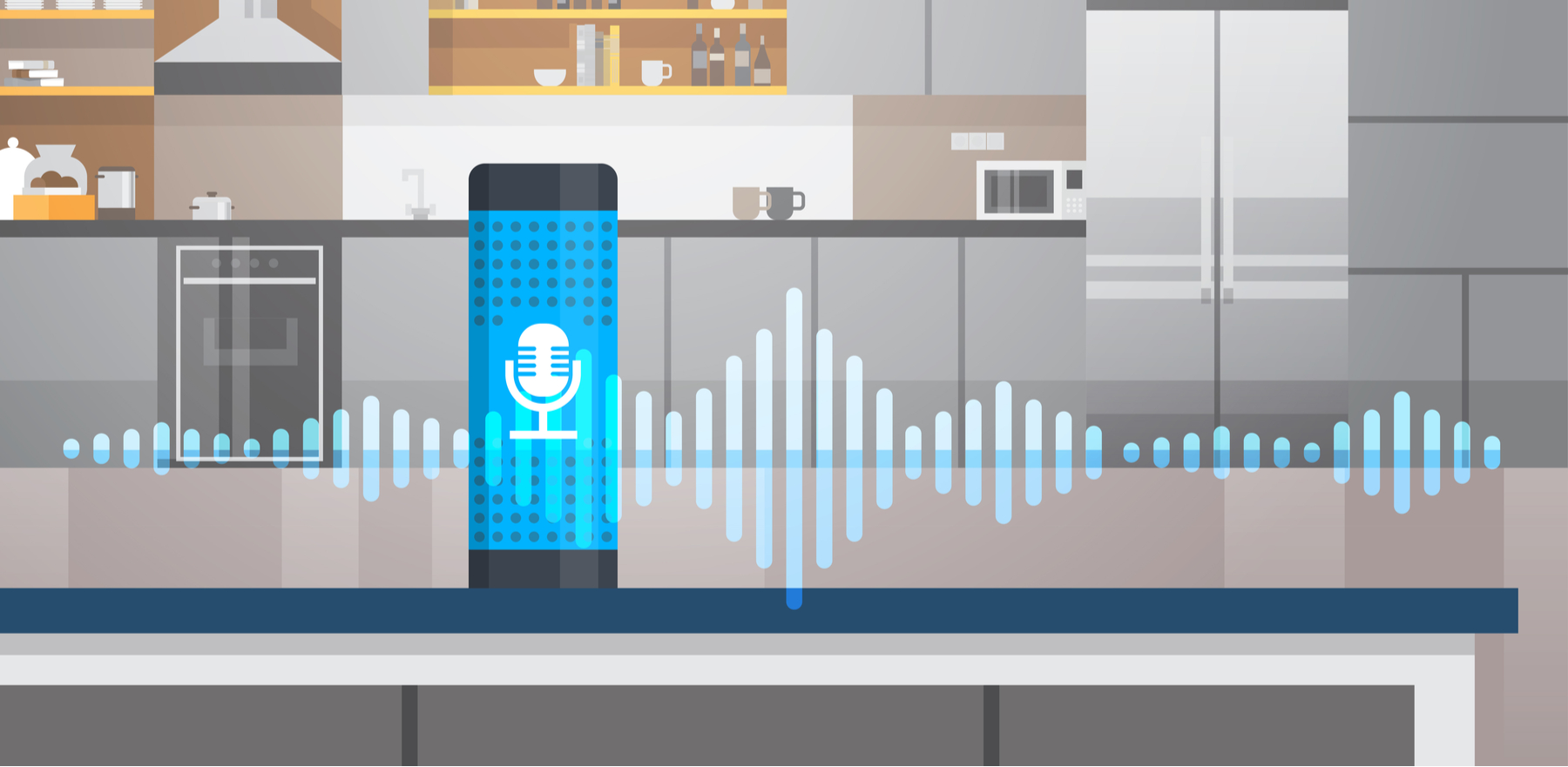Voice is increasingly becoming a more popular user interface as people get more accustomed to asking Alexa, Siri, and/or Google for answers to their quick queries. News skills are always being added to help people complete tasks, remember what’s on their schedule, play games, and more. Some pharma companies have already developed health-related skills as well, and more are in development. So, we asked our readers: If they could do anything with voice technology to improve the healthcare experience, what would be their dream project?
 Stress Detection and Relief
Stress Detection and Relief
My “dream voice project” would be to connect a virtual assistant such as Alexa or Siri to AI-controlled “anxiety sensors” that can be embedded on or in someone’s skin, close to their pulse, or even worn as a ring. When certain biomarkers of anxiety rise, the sensor would be triggered. In turn, this would activate the virtual assistant to guide you back to your baseline level or below. This might be done through giving instructions to meditate, by playing soothing music, or via psychotherapy techniques such as eye movement desensitization and reprocessing (EMDR). Ideally, the user would be able to choose which technique to use, or a calibration phase during setup would determine the most effective techniques for various scenarios.
No matter which relaxation technique is used, the goal would be to help create the “pause” that so many of us need in order to activate our cerebral cortex before reacting in negative ways using an overstimulated amygdala. Likewise, sensor-activated voice technology could also be used to interrupt negative patterns and habits before they turn into addictive behaviors.
 More Skills Like Boston Children’s Hospital “My Children’s”
More Skills Like Boston Children’s Hospital “My Children’s”
This time last year, Amazon announced the Alexa Skills Kit would enable select covered entities subject to HIPAA requirements to build Alexa skills that transmit and receive protected health information. This has resulted in a flurry of new skills: From AI symptom managers to wellness trackers to medication delivery, Alexa (and Siri and Google) are staying busy in the healthcare space. Looking at the current crop of Alexa skills, I think Boston Children’s Hospital “My Children’s” skill shows what virtual assistants do best.
“My Children’s” is designed to help children recovering from heart surgery. The skill supports parents and caregivers post-discharge, enabling them to provide updates to the care team on recovery progress. It also provides parents and caregivers information around upcoming appointments. This is the key feature of virtual assistants—becoming more deeply embedded in our communication channels, virtual assistants compress the various digital channels, allowing users to act and access information more easily. I see room for tremendous growth in healthcare apps that seize upon this key feature—connecting healthcare providers and patients in new and unimaginable ways.
 A Voice that Understands
A Voice that Understands
Current voice AI programs, such as Siri and Alexa, are helpful for completing tasks or gathering information, like offering restaurant suggestions or navigating cars. However, they aren’t very helpful if, for example, someone needs to do things like explain to an employer why migraines are requiring them to take more sick days or reveal a serious diagnosis to their family.
I’d love to adapt and integrate this technology as an extension of the resources offered through online health communities. Given the highly individual nature of people’s situations living with health conditions—whether that be receiving an unexpected diagnosis, feeling alone due to an illness, or needing someone to listen—voice AI could source information based on resources and personal comments found throughout specific sites, such as online health communities, or connect people directly to others in the community who could help them.
I’d love to provide—quite literally—the voice that understands, listens, helps to find solutions, and connects people in tough situations to people who have been down the same road.
 Informing Patients of the Journey Ahead
Informing Patients of the Journey Ahead
As one of the many who has contracted COVID-19 and one of the lucky who have since recovered, I believe voice technology can bring unique value to patients like myself.
As my virus symptoms progressed, I was constantly searching for the latest data on what to expect in the days ahead, potential treatment options, when to consider visiting an ER and, eventually, when I could consider myself non-contagious to my family and leave self-isolation. As you can imagine, there were a lot of late-night Google searches combing through loads of conflicting and ever-changing information.
In my dream project, I could just tell my voice-enabled digital patient assistant that I was recently diagnosed with COVID-19 and, through a natural dialogue, inform it I’m anxious to know more about my journey ahead. My assistant would then search, index, and report—in plain language—what it finds. As a patient, having access to technology that could interact with me in a more human way, pushing information that I can trust and is relevant in the moment, represents personal value that would completely transform how I looked at both voice technology and the brand that unlocked a very uncertain patient journey.
 More Personalized Experiences for Patients, HCPs, and Reps
More Personalized Experiences for Patients, HCPs, and Reps
Our current environment has helped us understand a few of the shortcomings of the existing healthcare system. HCPs are overwhelmed and faced with unique challenges. Voice technology could help alleviate some of these challenges in the near term. Voice interfaces could be an ideal choice to remove the need for people to touch shared items. For example, voice assistants can help with filling out insurance forms, getting samples, and offering patient support to reduce the initial wave of patient visits to hospitals by answering basic questions in their homes.
In the future, with the proper infrastructure, voice assistants will become even more personal. With HIPAA-compliant databases, voice tools could interact with patients to record dosing and medications, fill prescriptions, and answer questions about treatments to inform patients and help with adherence.
Voice can also sit on top of AI systems to facilitate more powerful conversations. One example: Field reps will have easier access to Siri, Google Assistant, and other voice-enabled devices, and can receive personal recommendations based on predictive analytics for their next sales calls, get an understanding of general patient history, and hear about their previous engagements with patients and HCPs that are recorded in systems like Veeva.
 Improving Physician-Patient Interactions
Improving Physician-Patient Interactions
For a few years now, we’ve dreamed of harnessing voice technology to create a physician assistant application that focuses on improving physician-patient interactions. More productive interactions will lead to better treatment decisions, greater patient satisfaction, and positive health outcomes. Our vision sees this being accomplished by using voice technology as a gateway into the physician’s EHR system as well as other connected data such as wearables, labs, and patient interactions with the physician’s practice.
For example, while commuting to work, a physician could receive a voiced summary of the patients to be seen that day, preparing the physician for the day ahead. Detailed briefings could be provided to the physician, which include a patient-visit summary, lab results, and compliance with a recommended exercise regimen via wearable data integration. While proper consent would, of course, be needed to harness these data, these are some examples of the power that voice technology could bring to the physician’s office. Additionally, a voice assistant listening to the physician-patient conversation could alert the physician to stress and anxiety in the patient’s voice that the physician may not have otherwise recognized, prompting the physician to respond to the patient’s needs immediately.






